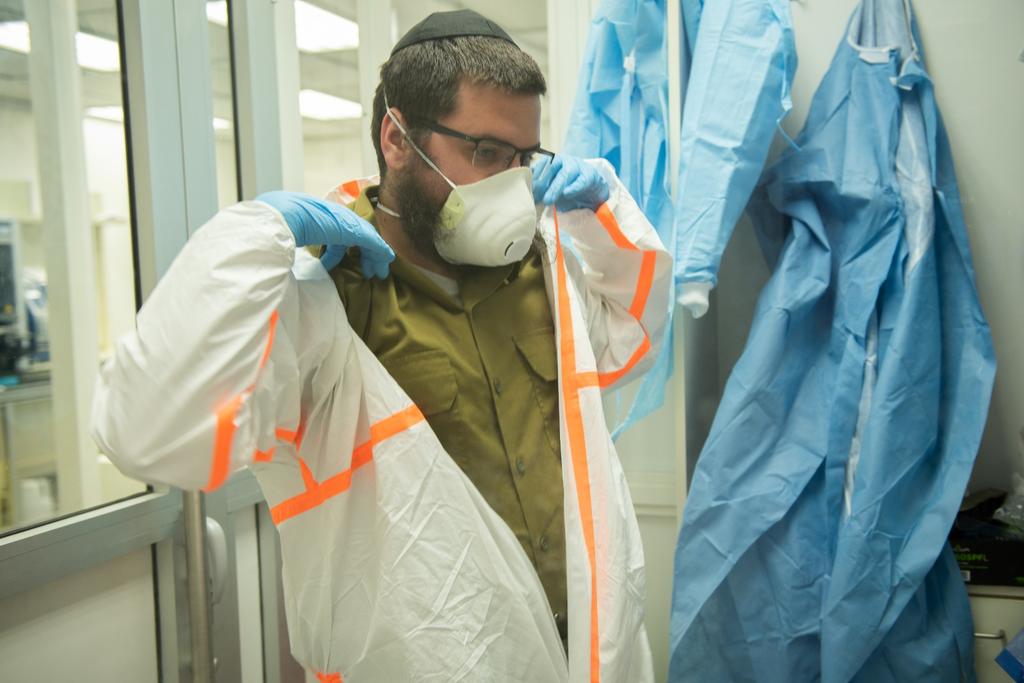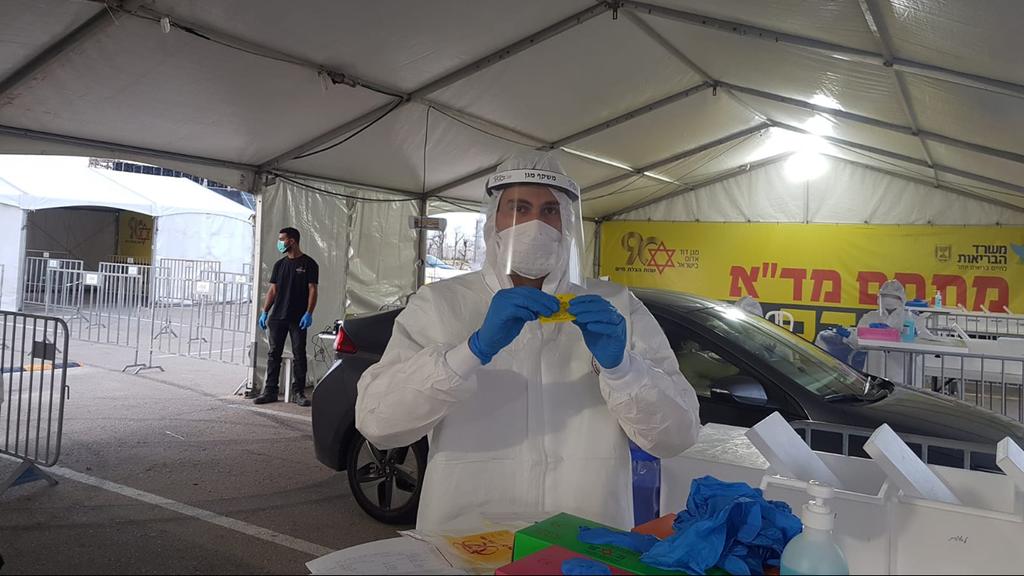An analysis of coronavirus patients' voices could yield a "vocal fingerprint" to help detect COVID-19 symptoms in others and prioritize testing and treatment, the Defense Ministry said on Tuesday.
Starting this week, an Israeli startup company working with hospitals and academic institutions will sample voices of confirmed coronavirus patients through a mobile application in a research project led by the ministry.
2 View gallery


An IDF soldier dons protective gear at a military lab researching treatment for coronavirus
(Photo: IDF Spokesperson's Unit)
"These voice samples will be analysed using an AI (Artificial Intelligence)-based algorithm in order to identify the unique vocal 'fingerprint', the ministry said in a statement.
The coronavirus affects the respiratory system and signs of distress can be reflected in the patterns of a person's voice and breathing.
Tal Wenderow, President and CEO of Vocalis Health, the company that developed the mobile app, said that the algorithm would be used for remote diagnosis and monitoring.
At this stage, the app would only be used by medical staff together with the patients taking part in the study, but the company's website allows anyone to take part and send a voice sample to the researchers.
Researchers hope that healthcare systems would be able to use the data to prioritize testing and hospitalization, allowing patients with light symptoms to stay at home.
The ministry said the monitoring system "can be conducted from afar, in order to prevent the spread of the disease and overburdening of the national healthcare system."
The initial results of the study were expected within six weeks.


